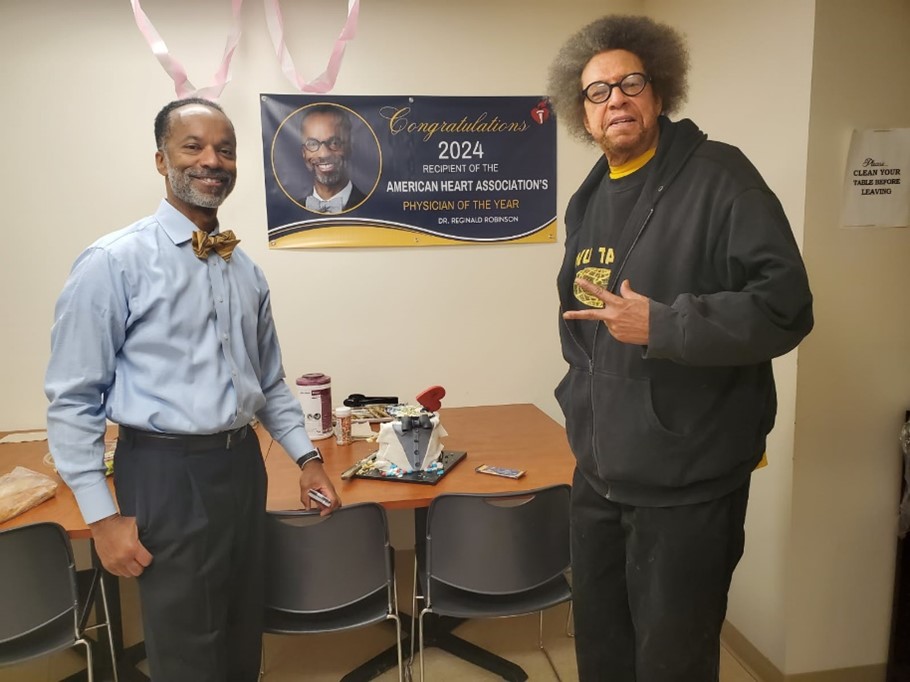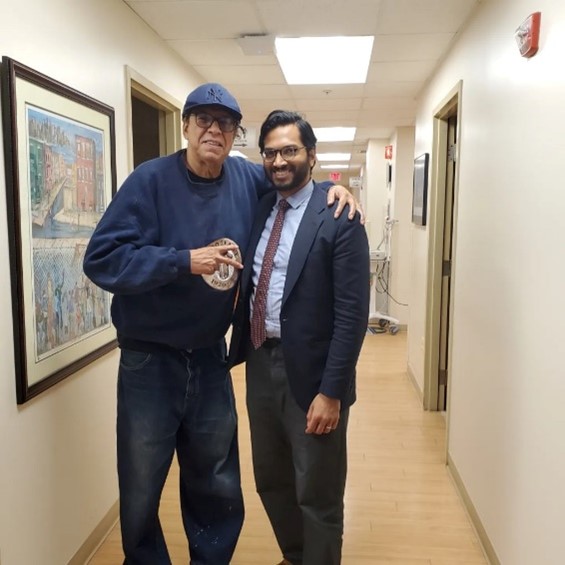
After nearly four decades in the music industry, working with some of the biggest names in reggae, hip-hop, gospel, and urban music, Luther Clark, a 69-year-old industry veteran found himself facing a life-threatening health crisis. Luther had an active lifestyle, he swam six days a week and took kickboxing and spin classes; he was the picture of health. “I’m a very self-conscious person, so I thought I had my health in control” he recalls. But in 2015, something felt off. Luther was unusually tired during a walk, prompting a visit to his primary care physician. That visit turned out to be lifesaving. Within moments, his doctor recognized something was wrong and had him rushed to Washington Hospital Center, where he was diagnosed with atrial fibrillation (AFib), a serious heart rhythm disorder.
Despite having only high blood pressure, which was under control, the root cause of his AFib turned out to be his thyroid. A medication he had been prescribed after switching insurance plans was not a good fit for his body, and his thyroid began overstimulating his heart. His cardiologist quickly intervened, adjusting his medications and monitoring his condition. But just weeks before Labor Day in 2015, his heart gave out and he was rushed to the ER. Fortunately, he avoided a stroke or heart attack, but the experience was a wake-up call.
Luther spent several days in the hospital and began his recovery. By the following year, in 2016, he was readmitted briefly and learned he would need a pacemaker. The procedure was successful, and thanks to a strong support system, including his sister, a neurologist, who helped him navigate the process with confidence. He followed every piece of medical advice given to him, which he credits for his smooth recovery and lack of complications.

Remarkably, his activeness didn’t change much after the pacemaker. He continued working out, though he had to give up contact sports like self-defense training. He now lives with a home monitor that tracks his heart activity and sends daily updates to his medical team. If he doesn’t get a call, he knows everything is fine. His story is a testament to the power of early detection, proactive care, and following medical guidance.
Now, Luther is on a mission to raise awareness, especially among younger people. He’s seen too many seemingly healthy individuals, including bodybuilders, suffer from heart issues. His message is clear: “Don’t wait until something feels wrong. Know your family history, get regular checkups, and see a cardiologist even if you feel fine. It’s better to be proactive than reactive,” he says, hoping his story will inspire others to take their heart health seriously.
To get involved with the American Heart Association, Greater Washington Region, visit: http://www.heart.org/dc
Written by Linda Quintanilla, Intern of Impact